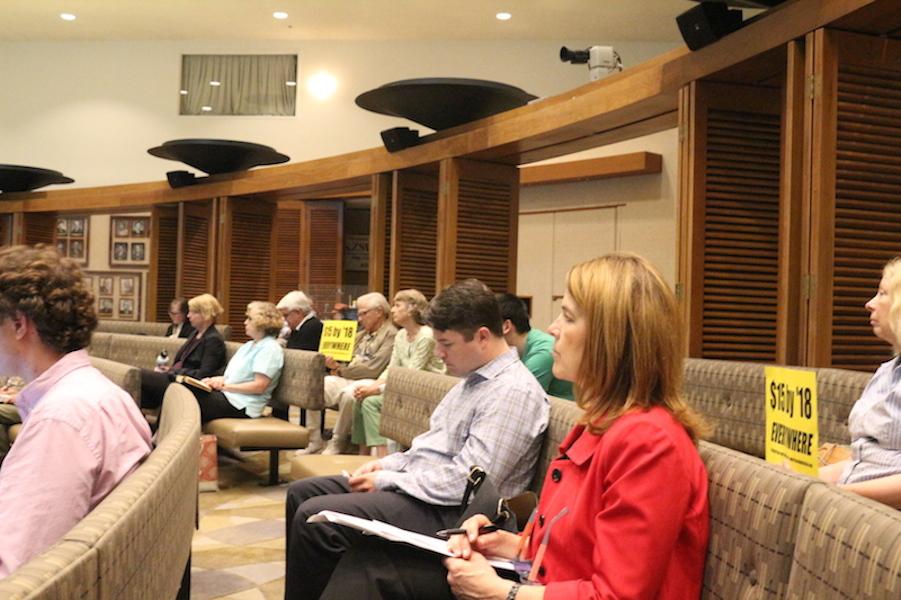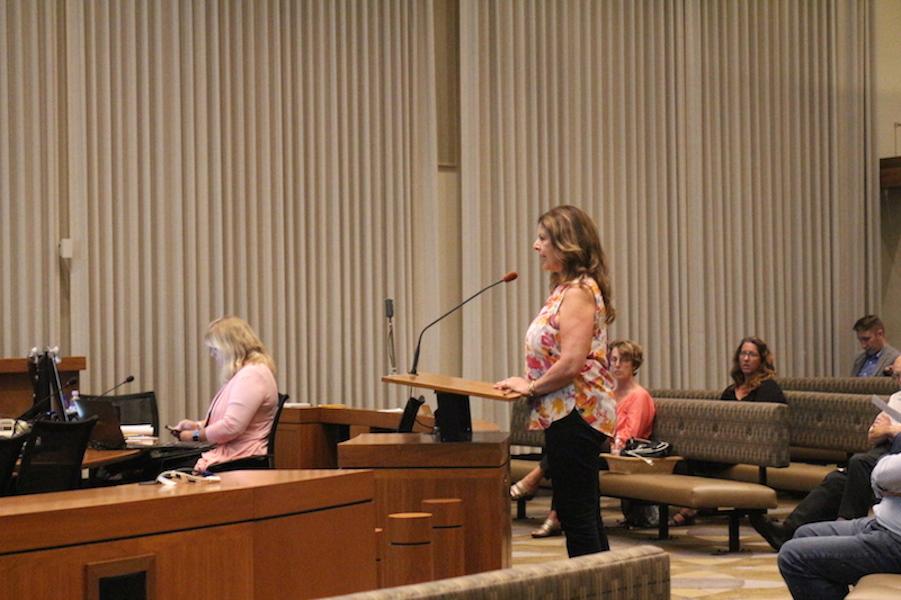
Palo Alto’s minimum wage will increase from $9 to $11 per hour, effective Jan. 1, after a unanimous vote by the Palo Alto City Council on Aug. 24. The wage hike is part of a phased effort to set the minimum wage to $15 by 2018.
The decision came nearly four months after the Council’s Policy and Services Committee approved a recommendation to increase the city’s minimum wage, in light of several neighboring cities’ adoption of wage hikes.
Several open-forum speakers emphatically advocated for a minimum wage hike, and rebutted the claim that an increase would be devastatingly detrimental to businesses.
“The dire predictions are wrong,” said Paul George, director of the Peninsula Peace and Justice Center. “We have an excellent real life example from San Jose … in the food and hospitality industry, the number of jobs increased.”
Others implored the council to vote for a wage increase as a means to combat ever-increasing income inequality.
“The rich get richer and the poor get poorer,” said Andrew Boone, a member of East Palo Alto’s Planning Committee. “There’s no reason not to do it [raise the minimum wage] that I can think of.”
A few small business owners, however, urged the council to vote against the measure, explaining that tip compensation, among other factors, are not considered as part of the current wage.
“The minimum wage can’t be looked at as a simple minimum wage,” Coupa Cafe owner Nancy Coupal said.

Michael Ekwell, the owner of La Bodeguita de Medio, cited dramatic and unnecessary increases in labor costs as reasons for maintaining the $9 minimum wage.
“We’ve got to raise our revenue $55,000 to compensate,” he said.
After hearing several community perspectives on the issue, the Council proceeded to discuss and comment on the potential negative consequences of raising the wage. Though the council members were supportive of the wage hike, they expressed a desire to explore exceptions regarding employee salaries. Councilman Greg Scharff commended the Committee’s gradual approach to raising wages but believes that other wage issues should be considered in future discourse.
“We should amend the [exempt waitstaff] policy to get where we want to go,” he said.
Councilman Cory Wolbach refuted the claim that teenage workers will be negatively impacted by the wage increase.
“‘It will hurt teens because they won’t be able to find jobs’ is a claim not well supported by economic research,” he said.
Mayor Karen Holman stated that the potential economic effects on teenagers was factored into her decision.
Junior Haley Chalmers, who works as a lifeguard, does not think the minimum wage increase will impact her job.
“I don’t think it [the wage increase] is going to affect me, because I already have a job and I get paid more than the minimum wage that it’s getting raised to,” Chalmers said.
However, Chalmers says she thinks the higher minimum wage might make it more difficult for unskilled teenagers without work experience to find jobs.
“It will be harder for companies to pay their employees,” Chalmers said. “They [businesses] are going to pick people with more experience over teenagers because there will be less job spaces.”
Matthew Glickman, a lecturer at the Stanford Graduate School of Business, believes that the raise will have a negligible effect on local businesses.
“The main thing that classic economics says is supply and demand — if you make something more expensive, people want less of it,” Glickman said. “But in practice, studies have shown that if it [the wage increase] is not a huge difference, not that many jobs disappear… so you probably won’t see a big change here.”

